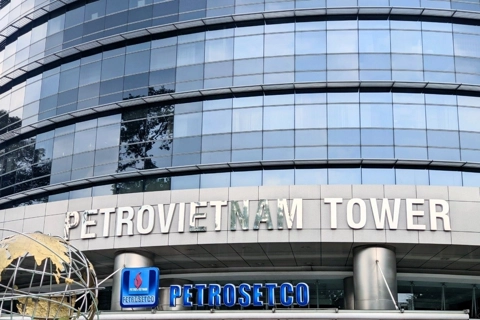Vietnam’s economy on firm recovery track: HSBC
Vietnam’s economy is forecast to recover by 6% in 2024, returning to its normal growth trend.
Vietnam’s economy is on a firm recovery track with the projected GDP growth in 2024 at 6%, significantly higher than the 5.1% rate record for this year, according to HSBC’s first outlook report in 2024.
The figure is in line with the growth target set by the National Assembly for 2024 at 6-6.5%.
| Electronics production at Noi Bai Industrial Cluster. Photo: Pham Hung/The Hanoi Times |
Foreign Direct Investment (FDI) and services are two factors contributing to the economic prospects in 2024. According to HSBC, FDI inflows enhance production capacity and provide opportunities for the export sector.
Last year, FDI registered and implemented reached its highest levels ever, amounting to US$36.6 billion and $23.2 billion, respectively. Particularly, new foreign investment capital hit a four-year high, reaching around 5% of the GDP, predominantly flowing into the electronics manufacturing sector - an industry in Vietnam deemed a "rising star."
“This is also an area where FDI inflows are more diversified, a reflection of Vietnam’s increasing significance in the global tech supply chain,” stated the report.
Apart from electronics, investors are showing interest in channeling capital into Vietnam's consumer sector. With a growth rate exceeding 7% in the fourth quarter of 2023, this service industry continues to provide essential support to the economy.
In the context of positive development, Vietnam aims to attract 18 million international tourists in 2024, marking an increase from the 12.6 million recorded last year.
However, according to HSBC experts, the economy also faces risks related to trade and inflation, which authorities need to monitor and have contingency plans for.
Last year, the export turnover was estimated at nearly $356 billion, a 4.4% decrease compared to 2022. The Ministry of Industry and Trade has set a target for this year's exports to increase by around 6%, equivalent to $377 billion.
However, HSBC noted that the signals of export recovery have not occurred broadly, almost entirely led by a brighter tech cycle. Therefore, the bank's experts maintain a cautious outlook on the export recovery for this year.
Regarding inflation, HSBC forecasts it to be at 3.4%, lower than the target of 4-4.5%. The trend of decreasing inflation is widespread, but price pressures have not entirely disappeared. Inflation risks from energy, food, and some services, such as healthcare, still exist.
Since the beginning of this year, Vietnam has imposed a global minimum tax of 15% on multinational corporations with consolidated revenues exceeding EUR750 million (US$800 million). In a recent report, VinaCapital also evaluated that the global minimum tax could limit FDI inflows into Vietnam.
Taxes are not the sole determinant of foreign investors pouring capital into Vietnam, with infrastructure connectivity, the availability of a skilled workforce, the ease of doing business, and free trade agreements also seen as crucial factors. However, HSBC experts also note the importance of "closely monitoring how additional budgetary sources from taxes are managed, as well as accompanying methods or incentives to offset the increased tax burden," as stated in the HSBC report.
The bank also recommends that Vietnam should improve infrastructure, and labor indices, and enhance the business environment to increase attractiveness to investors.













